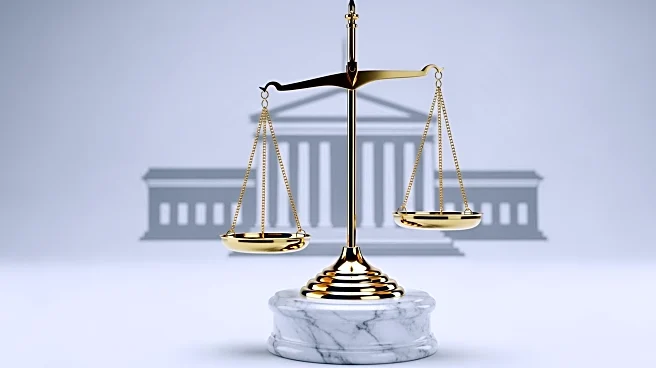What's Happening?
Treasury Secretary Scott Bessent announced his intention to attend the U.S. Supreme Court hearing regarding tariffs imposed by President Trump under the International Emergency Economic Powers Act (IEEPA).
The hearing will address whether President Trump exceeded his authority by setting sweeping import taxes, a move that lower courts have previously ruled against but left in place pending Supreme Court review. Bessent emphasized the significance of the case to the Trump administration, describing it as an economic emergency and a matter of national security. Despite President Trump's initial desire to attend, he decided against it to avoid distractions, stating the focus should be on the country rather than himself.
Why It's Important?
The Supreme Court's decision on this case could have substantial implications for U.S. trade policy and presidential powers. If the court rules against the Trump administration, it may limit the President's ability to use IEEPA for imposing tariffs, potentially affecting future administrations' trade strategies. The outcome could also influence international trade relations and economic stability, as tariffs impact global supply chains and domestic industries reliant on imports. Stakeholders such as businesses, trade partners, and policymakers are closely monitoring the case, given its potential to reshape the legal framework governing executive economic actions.
What's Next?
Should the Supreme Court rule against the Trump administration, alternative legal avenues may be explored to maintain the tariffs. Bessent has indicated that other authorities could be utilized to uphold the administration's trade policies. The decision may prompt legislative action to clarify or amend the scope of presidential powers under IEEPA. Additionally, reactions from international trade partners and domestic industries could influence subsequent policy adjustments, as stakeholders assess the impact on economic and national security interests.









